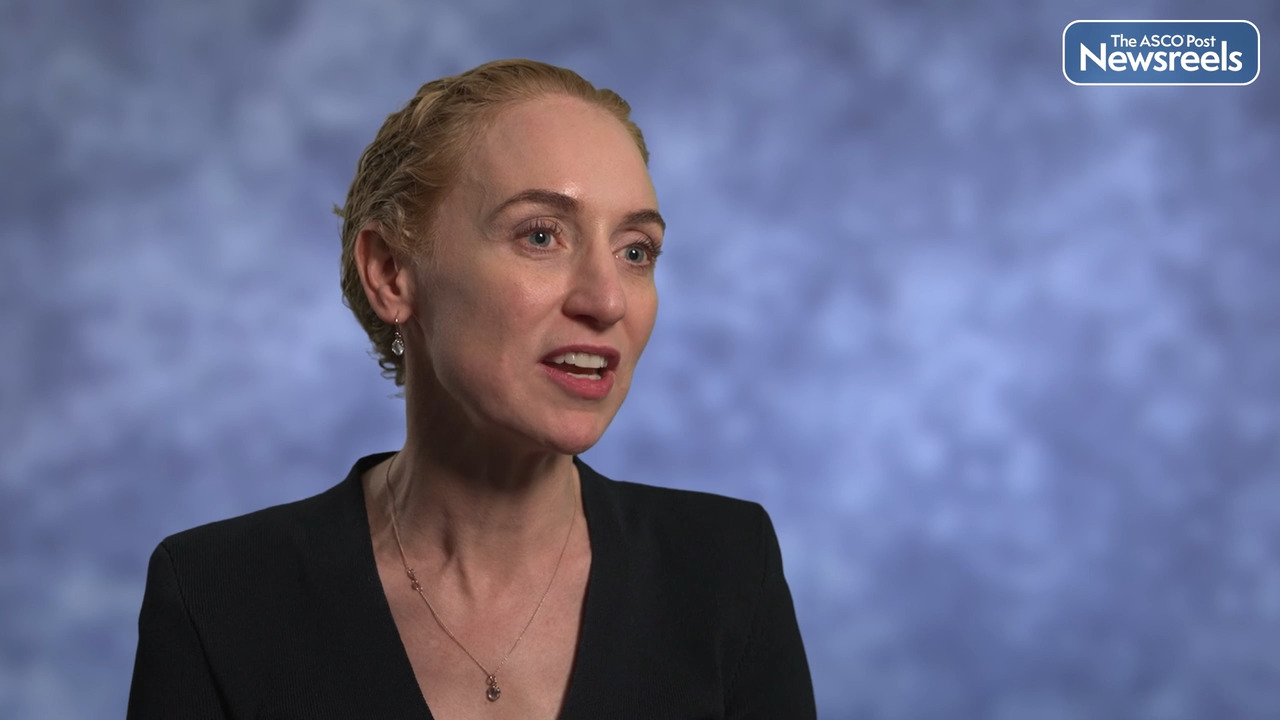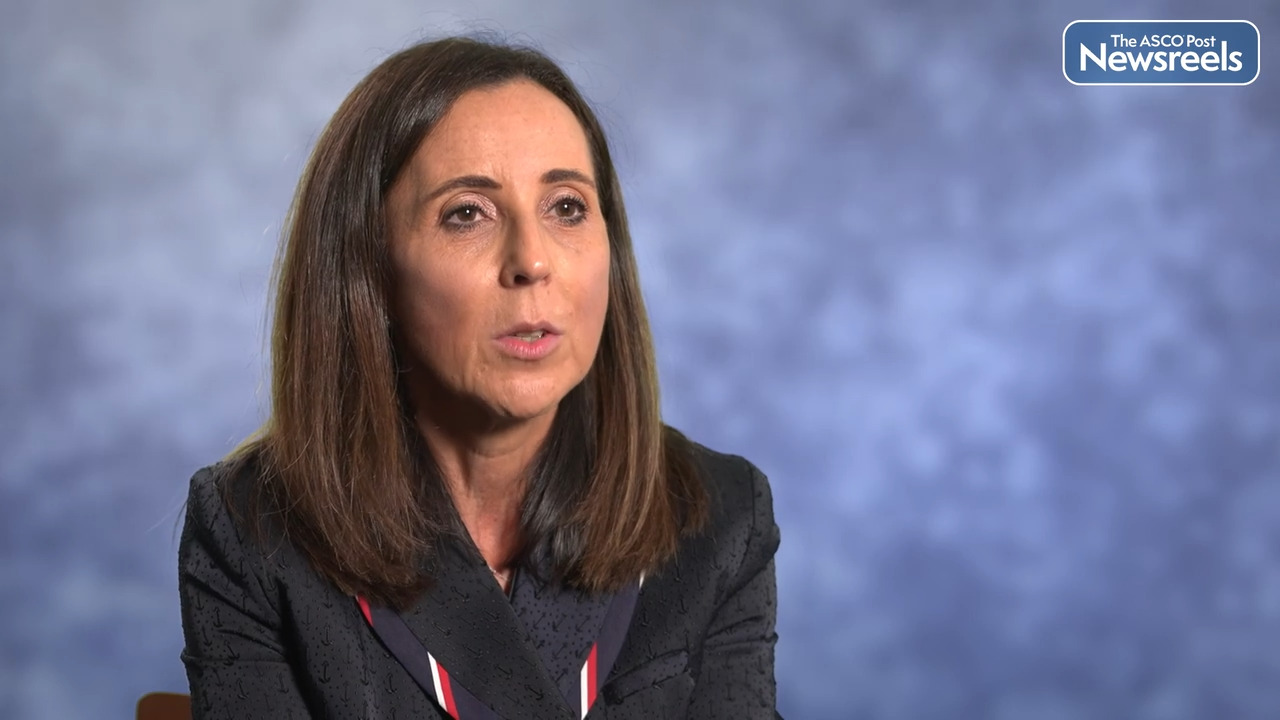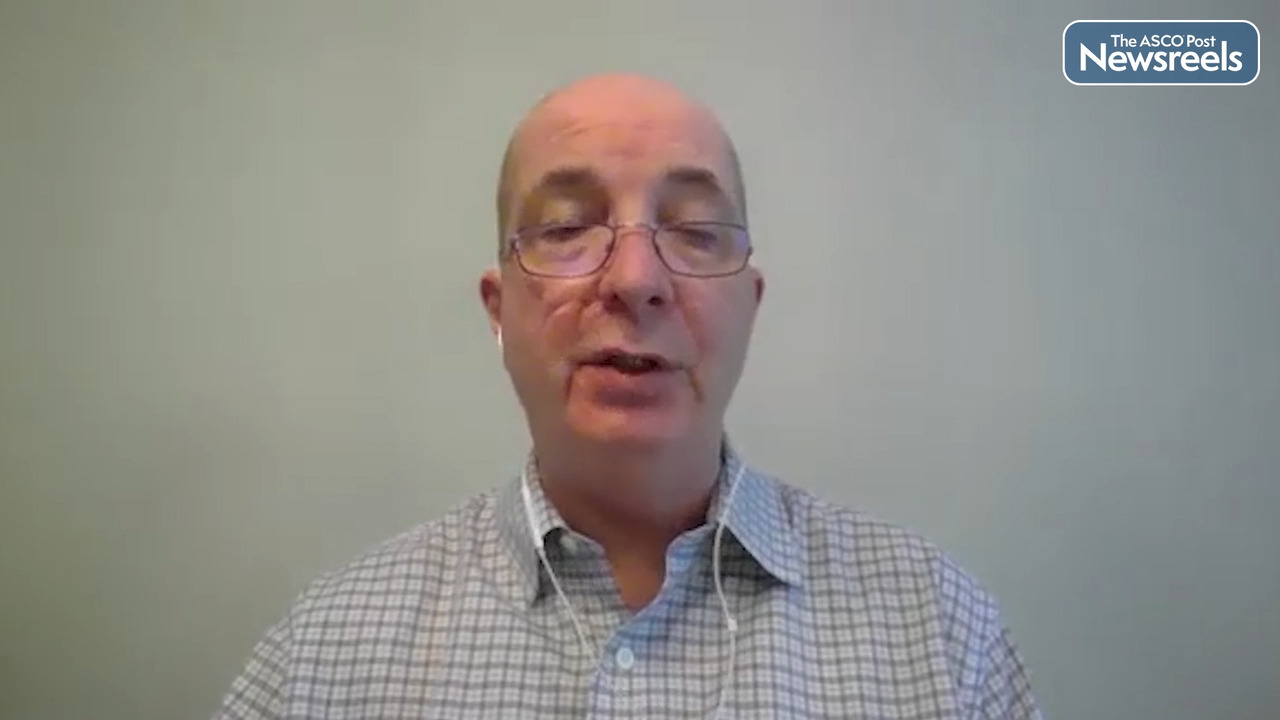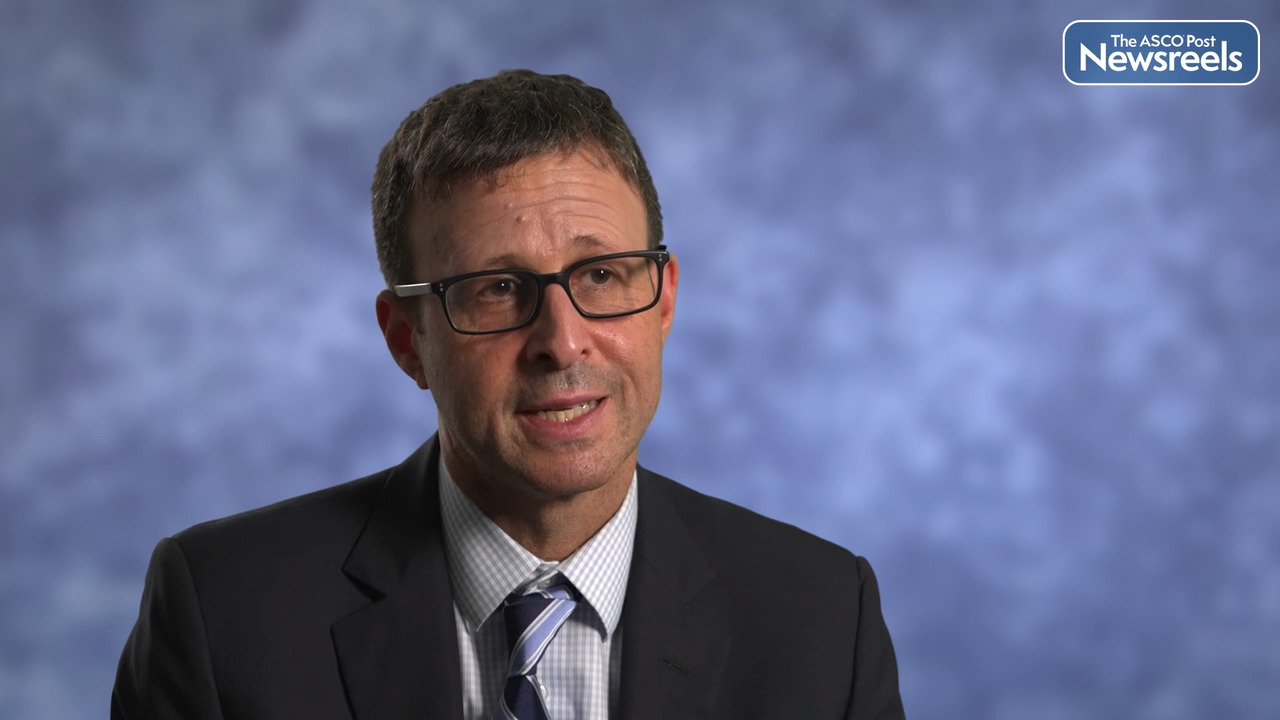Transcript
Disclaimer: This video transcript has not been proofread or edited and may contain errors.
We presented at ASMO the result of the KEYNOTE-412 trial that compared chemoradiation with pembrolizumab versus chemoradiation plus placebo in patient with locally advanced squamous cell carcinoma of the head and neck. The standard therapy for this group of patient when they're unresected is high-dose cisplatin combined with radiation therapy. With this treatment, the 5-year of our survival is around 50%. We clearly need to improve that. We know that pembrolizumab improves survival in the recurrent and metastatic setting. We have also preclinical model that demonstrate when you gave radiation therapy or cisplatin, that you increase the PD-L1 expression on the tumor, and there are also in preclinical model data that suggests that combining radiotherapy plus anti-PD-1 could improve the outcome.
In this study, we select patients unresected, so locally advanced squamous cell carcinoma, and we include patients with locally advanced disease, meaning stage 3 and stage 4 patient. For p16-positive oropharyngeal cancer, we include only T4 or N3 disease. The patients were randomized, so we include 804 patient, randomized 1:1 fashion between chemoradiation plus placebo versus chemoradiation plus pembrolizumab. We gave one dose of placebo or pembrolizumab one week before the cycle of chemoradiation, and in total, we gave 17 cycles. The primary endpoint was event-free survival.
The primary endpoint in this trial on the intent-to-treat population was not met, but we observe a favorable trend in favor of improved event-free survival in the group of patients that received chemoradiation plus pembrolizumab. The hazard ratio was 0.83 and the p-value, 0.04, but the efficacy boundary was 0.02 in this study. The 2-year event-free survival with was 56% in placebo and 63% in pembrolizumab.
After that, we performed an exploratory analysis where we look at patient with a high expression of PD-L1 on their tumor, CPS 20 or higher. In this group of patients, the 2-year event-free survival was, in placebo, 62%, and in pembrolizumab, 71%. For this group of patients, we also observe a favorable of overall survival benefit, with a 3-year of a survival rate of 73% in control and 79% in pembrolizumab.
So we conclude by saying that this trial did not meet the primary endpoint, although there is a favorable trend in favor of pembrolizumab with chemoradiation. This study gave important information, because probably we need to select the patient altered exploratory. It seemed that patients with high CPS score on the tumor could benefit of this approach. So future trials should probably try to select patient with a tumor that express PD-L1. Maybe also in the future, we should try to combine differently chemoradiation with pembrolizumab. Probably the adjuvant setting or the neoadjuvant setting will be better than the concomitant treatment.





